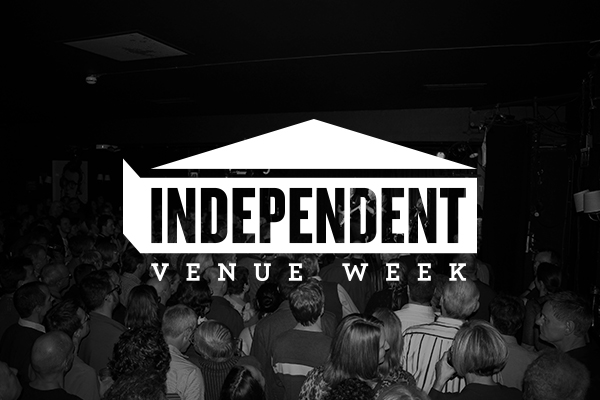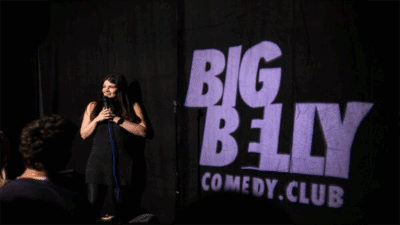Music

Ticketmaster meets Independant Venue Week co-founder Sybil Bell
As the inaugural Independent Venue Week gets under way across the UK, we caught up with co-founder Sybil Bell to find out more about the event and why small and medium sized venues play such an important role within the music industry.
Hi Sybil, can you tell us about Independent Venue Week.
We’ve been working on it for nearly a year now and we just felt that there was a need to bring to the attention of people the importance of going to their local music venue to see bands that perhaps they haven’t heard of yet. To get away from just listening to and discovering new music online – going to see it up close and personal, instead.
We started with the idea of not making it too big this first year so we could deliver something that works really well. We thought we’d start with six venues – because it’s over six nights – and now we’re up to 18, and we could have probably done double that.
For next year we’re already looking at other venues, but this year we’ve three gigs a night, all across the country, including Belfast, Glasgow and Cardiff.
Was it important to make it a regional event rather than just focus on the usual major musical cities, such as London, Manchester and Liverpool?
We really only wanted one venue per city this first year because we could only do so many shows. I think rather than having a congregation of venues in one area it made more sense to get this as far reaching geographically as possible. We’re all the way down in Plymouth, we’re all the way up in Scotland and we’re all the way across in Belfast – we wanted to get as much coverage as we could.
We’ve had a lot of emails from people saying ‘Why haven’t you come here?’ and in some cases we’ve tried those towns or cities and we’ve not had any luck in finding the right partner. We’ll certainly be able to do more cities next year and it’s incredibly likely that we’ll be able to do multiple venues in some cities.
What are the biggest challenges that independent venues face these days?
It’s really tough for what the venues do. There’s certainly increasing costs when it comes to running a building, and very often these premises have city centre locations. Therefore the material value of the building is high but the music venues only operate at night – so in terms of them being able to generate any revenue that only comes for a few hours in the evening, and I think that’s a massive challenge.
Also, for the bands that play these venues they’re not getting support from the labels, in terms of tour support, so they’re fewer bands going out. And I think people have become slightly complacent when it comes to going to their local venue.
A lot of people like to discover new music online and they’ll only go and see a band if they really truly like it or they’ve already started to grow to like it. But actually there’s something very magical about going to see a band that you don’t know very much about and that experience when you’re two or three feet away from them – it’s something that can’t be repeated.
We’ve just done an interview with Radiohead’s Colin Greenwood and he was saying it’s a piece of art that’s happening, and that it will never be repeated in the same way again.
That’s what people should get excited about again; just going to be part of something that could be in five years’ time the new Radiohead or the new Arctic Monkeys. It’s nice to be able to say I was there when they played in a room in front of 30 or 40 people.
How did you get Radiohead’s Colin Greenwood involved as an ambassador?
Colin and I were out for a pub lunch with our friend Stephanie Hardwick, and we were just talking about Radiohead and he said one of the things that they loved doing was playing live and that it was really important to the band.
I told him about the project and asked if he would like to be a spokesperson, as somebody who’s played all of these venues early on in their career and is now playing big stadiums, and he jumped at the chance.
Some of those early gigs were so important for the development of the band and, as he quite rightly pointed out, it’s the people behind the scenes that really make it happen for these bands.
The tireless promoters, the venue managers, the people that book them and look after them and the stagehands – they’re all part of the process of getting bands to where they are now, and they get very little credit. We’re hoping what we’re doing here not only highlights the venues but the people that work there.
What’s your background in music?
I’ve worked in the industry about 7-8 years and I’ve always been involved with bands: I’ve managed them and run their labels, I’ve owned a venue and a recording studio, done tour management and I still work on the music side now.
I think it’s a really interesting time and I think it’s very easy to say that the music industry is on its knees – it’s not. The record industry has changed significantly, but the record industry isn’t the music industry – and there’s a really important distinction between the two.
For those that are daring to do things on their own and put the effort in on their own, they’re seeing a lot more progress, and it really comes down to making sure your music is good.
If after playing for two years the only people in the audience are still your mum and your sister and your aunt, then perhaps your music is not what it should be – but it’s a tough call, because it’s so subjective.
What advice would to give to bands starting out and looking to play the smaller independent venues?
Start local. Don’t try and tour before you’ve even built up a following locally and you’ve learnt your craft. Play regularly at venues that are local to you and build up a following.
You need to learn the process of going on tour and learn how to deal with the venues and the promoters, and how to keep track of the deals that you’re doing and how to get on with people – it’s all very much part of becoming a band. And if you’re going to grow, then those skills that you learn early on will go with you.
The inaugural Independent Venue Week takes place across the UK from January 28 to February 2. Head over to their website for more information.









